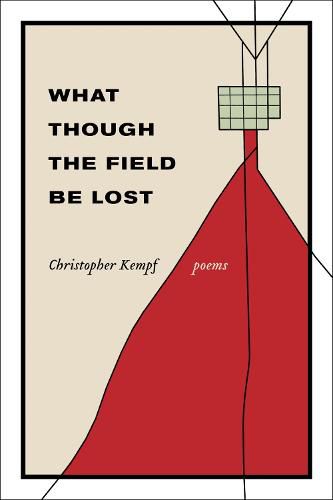Readings Newsletter
Become a Readings Member to make your shopping experience even easier.
Sign in or sign up for free!
You’re not far away from qualifying for FREE standard shipping within Australia
You’ve qualified for FREE standard shipping within Australia
The cart is loading…






This title is printed to order. This book may have been self-published. If so, we cannot guarantee the quality of the content. In the main most books will have gone through the editing process however some may not. We therefore suggest that you be aware of this before ordering this book. If in doubt check either the author or publisher’s details as we are unable to accept any returns unless they are faulty. Please contact us if you have any questions.
Based on two years living and researching in Gettysburg, Pennsylvania, Christopher Kempf’s What Though the Field Be Lost uses the battlefield there as setting and subject for poetry that engages ongoing conversations about race, regional identity, and the ethics of memory in the United States.
With empathy and humility, Kempf reveals the overlapping planes of historical past and public present, integrating archival materials-language from monuments, soldiers’ letters, and eyewitness accounts of the fighting-with reflections on present-day social and political unrest. Monument protests, police shootings, and heated battle reenactments expose the ambivalences and evasions involved in the consolidation of national (and nationalist) identity. As the book’s title, an allusion to Milton’s Satan, suggests, What Though the Field Be Lost shows that, though the Civil War may be over, the field at Gettysburg and all it stands for remain sharply contested.
Shuttling between past and present, the personal and the public, What Though the Field Be Lost examines the many pasts that inhere, now and forever, in the places we occupy.
$9.00 standard shipping within Australia
FREE standard shipping within Australia for orders over $100.00
Express & International shipping calculated at checkout
This title is printed to order. This book may have been self-published. If so, we cannot guarantee the quality of the content. In the main most books will have gone through the editing process however some may not. We therefore suggest that you be aware of this before ordering this book. If in doubt check either the author or publisher’s details as we are unable to accept any returns unless they are faulty. Please contact us if you have any questions.
Based on two years living and researching in Gettysburg, Pennsylvania, Christopher Kempf’s What Though the Field Be Lost uses the battlefield there as setting and subject for poetry that engages ongoing conversations about race, regional identity, and the ethics of memory in the United States.
With empathy and humility, Kempf reveals the overlapping planes of historical past and public present, integrating archival materials-language from monuments, soldiers’ letters, and eyewitness accounts of the fighting-with reflections on present-day social and political unrest. Monument protests, police shootings, and heated battle reenactments expose the ambivalences and evasions involved in the consolidation of national (and nationalist) identity. As the book’s title, an allusion to Milton’s Satan, suggests, What Though the Field Be Lost shows that, though the Civil War may be over, the field at Gettysburg and all it stands for remain sharply contested.
Shuttling between past and present, the personal and the public, What Though the Field Be Lost examines the many pasts that inhere, now and forever, in the places we occupy.